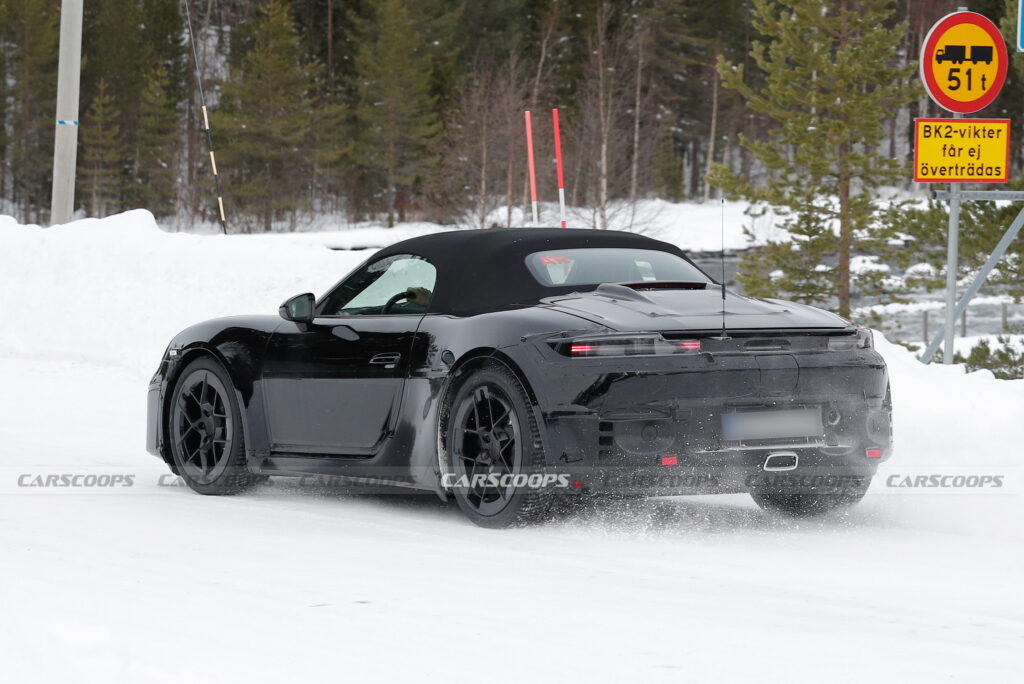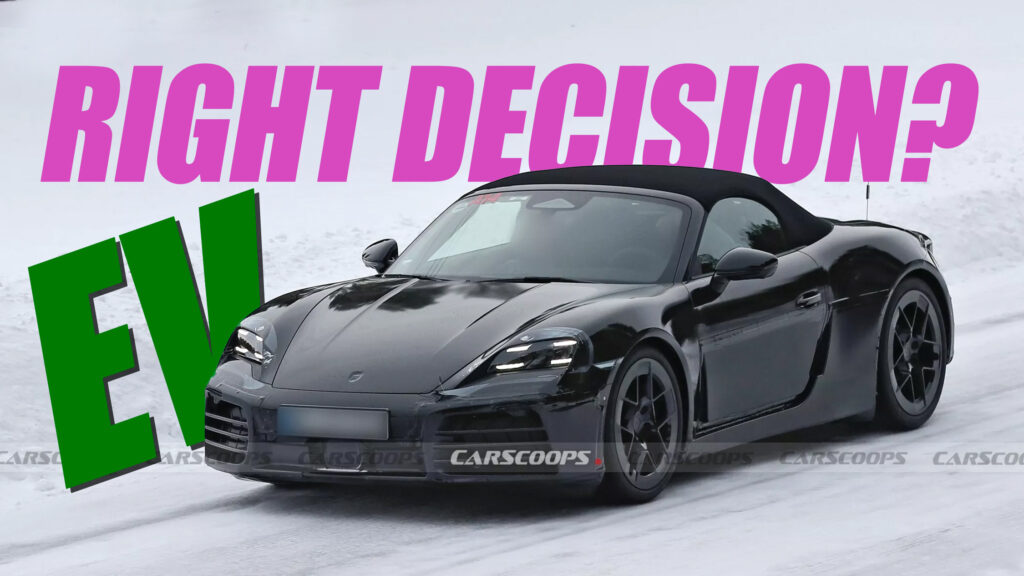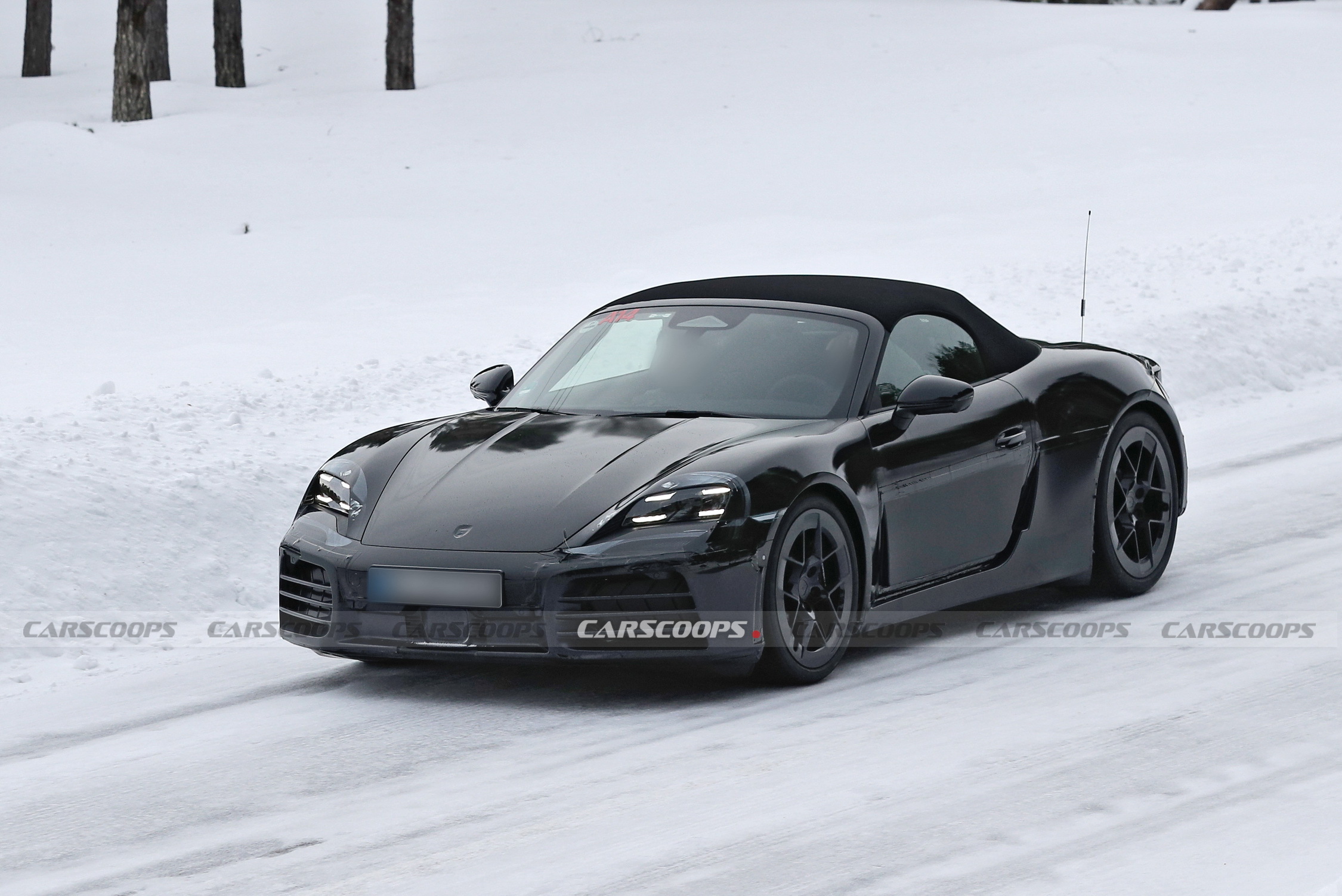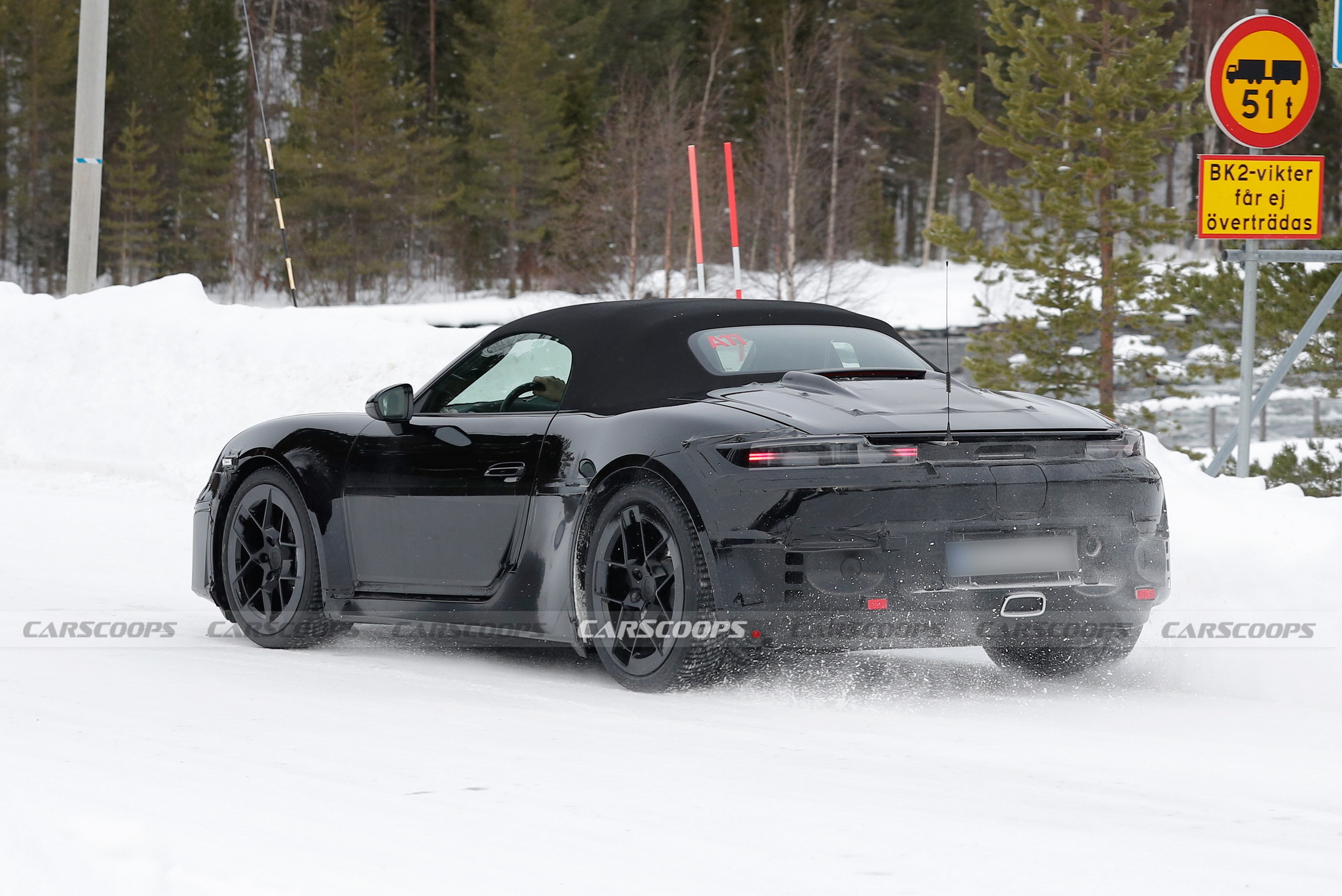- Porsche says the transition to electric power in the car market is taking much longer than it expected.
- The automaker had previously suggested that EVs could account for 80 percent of its sales by 2030.
- Porsche’s admission comes too late to change its plans for the Boxster and Cayman, which become EVs starting later this year.
Porsche has admitted that the transition to electric power in the car market is taking much longer than it had predicted. The German automaker had previously suggested that EVs could account for 80 percent of its sales by 2030 and altered its product plans to meet a level of demand that hasn’t materialized.
“The transition to electric cars is taking longer than we thought five years ago,” Porsche said in a statement, echoing the thoughts of other European luxury auto brands, including Mercedes. So while Porsche has the products and production capability to meet that planned-for 80 percent figures, it says it won’t push for it and will let customers lead the way.
Related: Porsche Committed To Axe ICE Macan And 718 Despite Slow EV Demand
“Our product strategy is set up such that we could deliver over 80 percent of our vehicles as all electric in 2030 — dependent on customer demand and the development of electromobility,” Reuters reports Porsche saying.
But if that demand isn’t there, surely that leaves Porsche in a bit of a pickle? It launched an electric version of its Macan EV earlier this year, but is about to kill off the combustion version, which was previously its best-selling product line, and still comes a close second behind the Cayenne, accounting for 27 percent of sales in 2023.
And Porsche is already too far down the road of replacing its ICE-powered 718 Boxster and Cayman sports cars with EVs to change its plans now. The all-electric Boxster will be revealed before the end of 2024, and although the departing combustion versions didn’t sell in huge numbers, there must be some nervous suits at Stuttgart wondering if turning them into electric sports cars was the right move.

It’s too late for regrets now: Porsche has already killed the combustion Macan and 718 duo in Europe rather than update them to meet new cybersecurity laws, and those same 718s will die in other markets in 2025, and the ICE Macan bows out, in 2026. Though we’d love to see Porsche change its mind and reverse-engineer the new electric 718s to take a flat-six, a bit like Fiat has modified its 500e to take a combustion engine, it seems unlikely.
Even the Taycan, Porsche’s first EV, and a popular car in its first few seasons, has struggled to generate demand recently. Fortunately, Porsche opted to hold back on the development of an electric 911, which is making a much slower transition to electrification. The model line gets its first hybrid for 2025, but won’t go full-EV for at least five years. And though Porsche is working on an electric Cayenne for 2026, the big-selling combustion version will live on well into the 2030s.
On top of those longer-term worries, Porsche has a more immediate one in the form of an aluminium shortage. Reuters reports that flooding at a European supplier will impact production of every single Porsche model and could even lead to multiple line shutdowns. The holdup is predicted to cut Porsche’s 2024 revenue from around $45.7 billion to $43.6 bn, news that knocked 5 percent off the automaker’s shares this week.


















